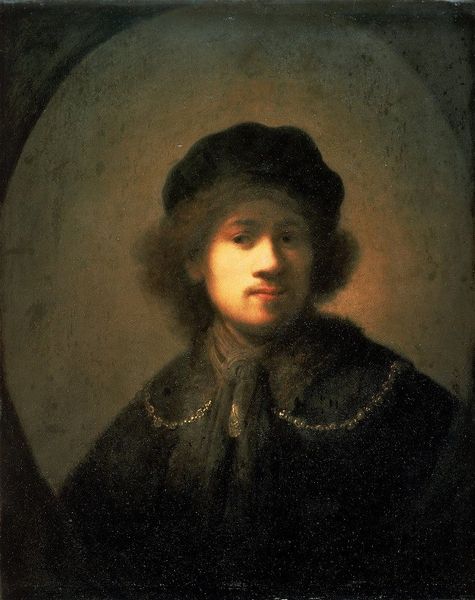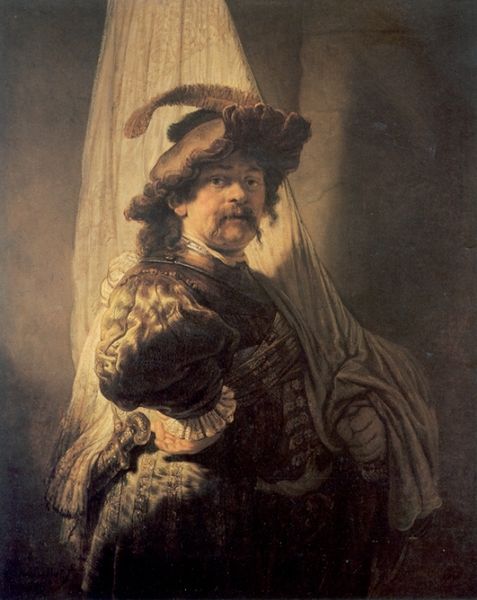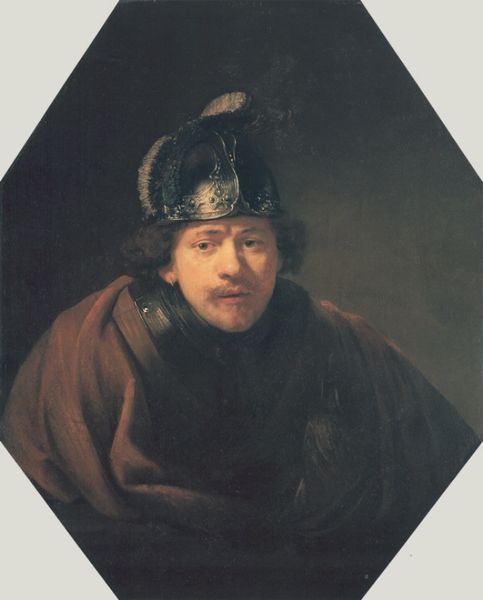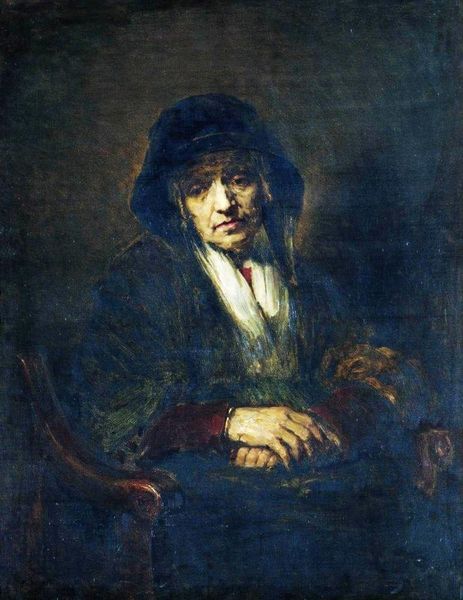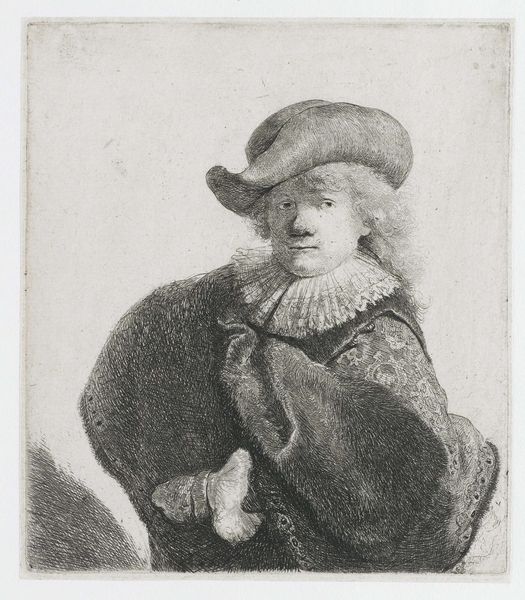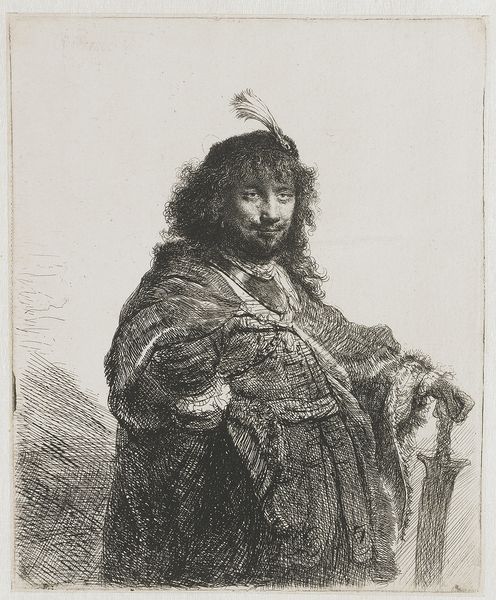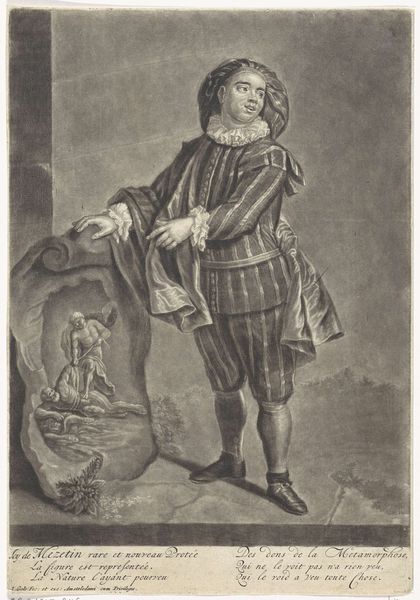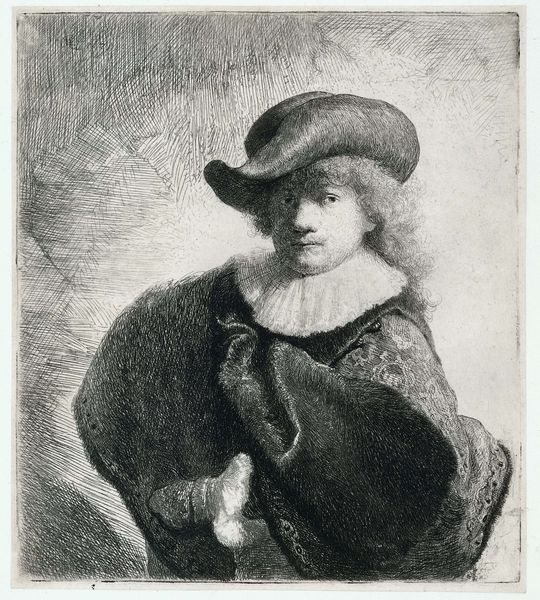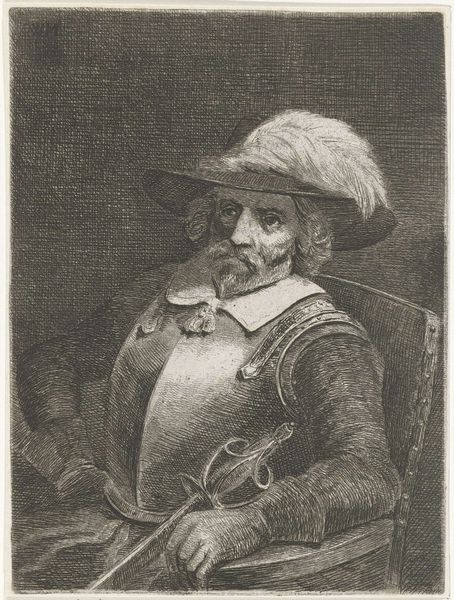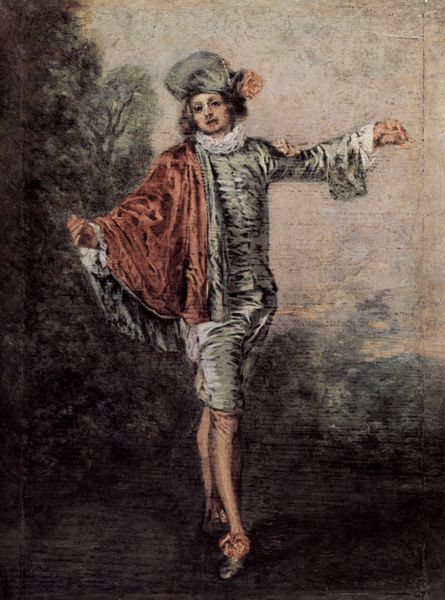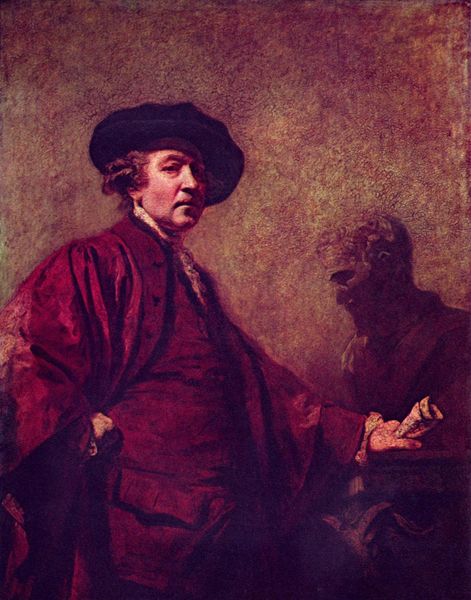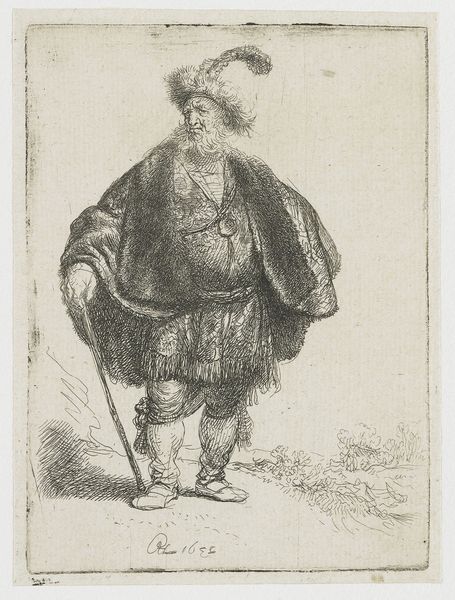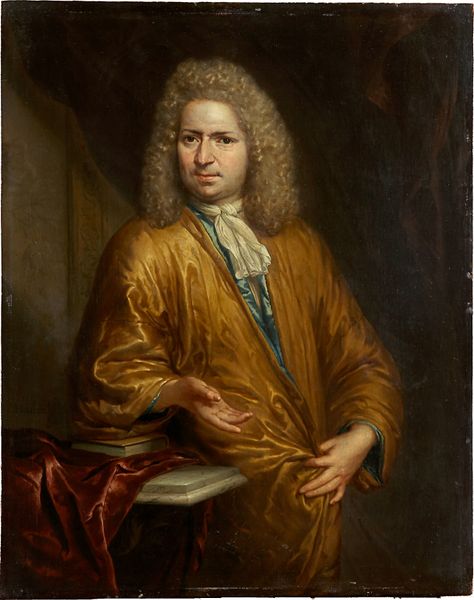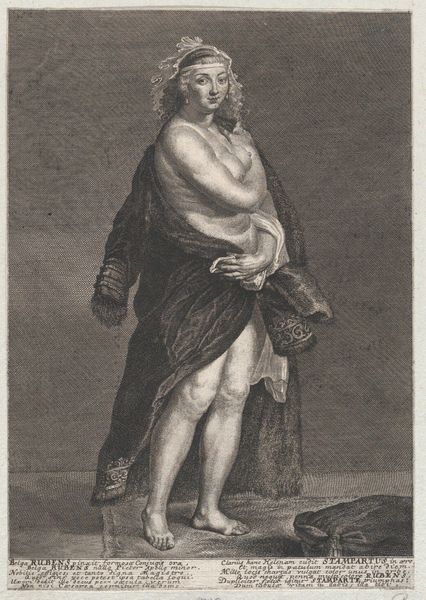
painting, oil-paint
#
portrait
#
self-portrait
#
baroque
#
dutch-golden-age
#
painting
#
oil-paint
#
figuration
#
genre-painting
Dimensions: 66.5 x 52 cm
Copyright: Public domain
Rembrandt van Rijn painted “Self-portrait in oriental attire with poodle” in the 17th century using oil on canvas. During this period, the Dutch Golden Age, the Netherlands experienced a surge in trade and cultural exchange, which fueled the fascination with the ‘exotic Orient.’ Here, Rembrandt represents himself in a turban and an elaborate robe, appropriating the attire of the Ottoman Empire. This self-portrait, however, isn't just an exercise in orientalism; it reflects Rembrandt's complex relationship with his own identity and artistic persona. The inclusion of the poodle could be seen as a symbol of loyalty, status, or even a playful commentary on the artist’s own position in society. What's striking is how Rembrandt, despite using ‘oriental’ garb, remains undeniably himself. He invites us to consider the boundaries of identity: how we perform it, how we perceive it, and how it is perceived by others. The painting becomes a stage where Rembrandt plays with identity, challenging traditional notions and expressing a deeply personal, and perhaps subversive, narrative.
Comments
No comments
Be the first to comment and join the conversation on the ultimate creative platform.
